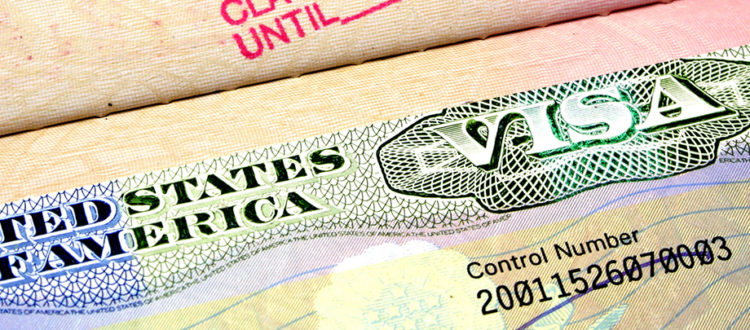Obama Unilaterally Rewrites Immigration Law — Again
Published on September 21st, 2015
Ian Smith
September 21, 2015
National Review
Administration lawyers ‘reinterpret’ the law to greatly increase visas for technology firms.
Last week Senate Judiciary Committee chairman Chuck Grassley hit back against Obama’s Department of Homeland Security (DHS) after the agency pushed through, during a congressional recess, a major immigration item that has long been on the technology lobby’s wish list. According to a new “policy memorandum,” Obama’s immigration authorities will now be redefining the term “specialized knowledge” as it applies to the L-1B visa, a program previously aimed at bringing over highly sought-after “intracompany transferees” from American firms’ affiliated companies abroad. No doubt burned by Congress’s “stubborn” refusal to raise the cap on annual cap on H-1B visas (which are “skilled” temporary non-immigrant worker visas) the Obama administration, at the behest of Big Tech lobbyists, has told its agency lawyers to think up a clever alternative. In a strongly worded letter to Obama’s immigration authorities, Grassley, a 35-year Senate veteran, closely outlines the legal and practical faults of the new policy and demands answers from the agency regarding its purported authority for the move.
The L-1B visa, a cousin of the H-1B, applies to so-called “specialized knowledge” employees, usually in the IT industry, who may be transferred to the U.S. from their foreign affiliated employer to work here for up to five years. Often, as with H-1B holders, these “temporary” workers obtain sponsors and apply for permanent status. When President Obama announced his general plans to “reform” the program last spring, he stated that his goal was to allow more workers to move from foreign offices into the U.S. “in a faster, simpler way.” Americans should get behind the proposal, he stated, as it “could benefit hundreds of thousands of nonimmigrant workers and their employers,” which “in turn, will benefit [the] entire economy.” Setting aside concerns about whose “economy” will actually be benefited — the public’s or the special interests’ — the problem with this new “reform” is that the L-1B intracompany-transferee program was never meant to be a mass temporary-worker program. On the contrary, as Grassley’s letter states, Congress’s intent was to ensure that the class of persons eligible for such visas would be “narrowly drawn.” This would seem to comport with the purpose of the program, which is to attract only “key employees” with “specialized knowledge.” Grassley backs this up by noting a statement from the acting deputy director of U.S. Citizenship & Immigration Services (USCIS) under George W. Bush, Robert Divine, who stated in 2006 that there’s no indication that Congress ever intended to depart from its position that the visa is intended for “key employees” only and that the “class of persons eligible for such nonimmigrant visas is narrowly drawn and will be carefully regulated.” As Grassley reasonably asks, how can a company “have many L-1B workers doing identical ‘specialized knowledge’ work?” In other words, can everyone be considered special?
DHS’s move on the issue is rooted in the complaints Big Tech lobbyists and immigration attorneys have long made about their L-1B applications, specifically that the number of denials and “Requests for Evidence” they receive is simply too high, while adjudications of those applications are too restrictive. Ideally, of course, they want the number of rejected applications to be zero — that would bring industry wages collapsing down. But rejection rates aren’t a “real problem,” says Grassley’s letter. In 2013, the letter notes, a DHS inspector general’s report concluded that USCIS was “not unduly restrictive” in L-1B adjudications. The problem with decreasing standards and adopting a more “liberal definition of specialized knowledge,” the IG report noted, would be to “open the category to an unlimited number of foreign workers.” “Exactly,” a Big Tech lobbyist or immigration attorney might say.
Regardless, says Grassley, the term “specialized knowledge” has already been expanded over the years to the point where it is almost rendered meaningless. He cites an earlier IG report criticizing “new interpretations” of the program that have defined the term so broadly that “adjudicators believe they have little choice but to approve almost all petitions.” As the report observed, “that so many foreign workers seem to qualify as possessing specialized knowledge appears to have led to the displacement of American workers.”
Grassley also notes USCIS’s failure to bring about the policy change through the more open (but time-consuming) regulatory process. This is a likely procedural violation for the agency and a key point for possible litigators. The guru of all things tech-visa-related, UC Davis computer-science professor Norm Matloff, notes that USCIS’s new treatment of L-1B visas is just another example of the agency’s “taking the law into its own hands.” Another example he cites, a recent rule reinterpretation giving spouses of H-1B holders work permits, is the subject of litigation by the Immigration Reform Law Institute, a pro-enforcement legal advocate I work for. For 30 years, it was understood among USCIS authorities that there was no statutory authority for handing out work permits to the spouses of temporary workers holding H-1B visas. That interpretation was recently upended by the Obama administration, whose lawyers claimed that DHS can give work permits to whomever it wants.
There, as here, we have yet another example of the president’s stretching the interpretation of our immigration laws until the country’s immigration system and the labor market break. Let’s hope Congress rolls this back and American labor gets the attention it deserves this election cycle.
Ian Smith is an attorney in Washington, D.C., and works for the Immigration Reform Law Institute





